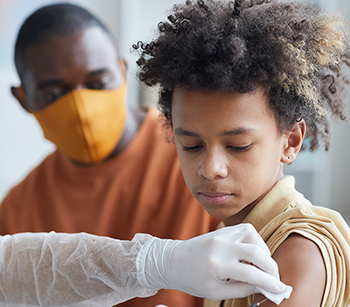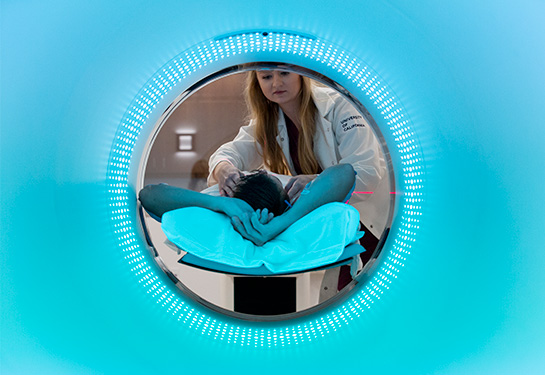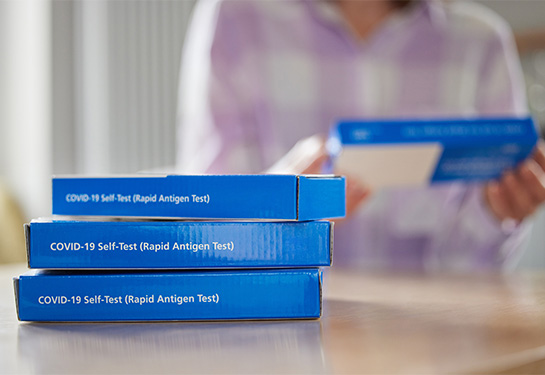Children 12 to 15 can now be vaccinated against COVID-19 (video)
Pediatric infectious disease expert encourages parents and caregivers to immunize adolescents
This video is best viewed in Chrome or Firefox.
UC Davis Health experts are advising parents to get their 12- to 15-year-olds vaccinated against COVID-19. The U.S. Food and Drug Administration (FDA) has approved the Emergency Use Authorization to allow adolescents to get the vaccine made by Pfizer. The U.S. Centers for Disease Control and Prevention (CDC) has also adopted an advisory committee’s recommendation on the safety of the vaccine for this age group.
“The FDA’s expansion of the emergency use authorization for the Pfizer-BioNTech COVID-19 vaccine to include adolescents 12 through 15 years of age is a significant step in the fight against the COVID-19 pandemic,” said acting FDA commissioner Janet Woodcock. “Parents and guardians can rest assured that the agency undertook a rigorous and thorough review of all available data, as we have with all of our COVID-19 vaccine emergency use authorizations.”

UC Davis Health is now scheduling COVID-19 vaccinations for kids age 12 to 15
The Pfizer vaccine consists of two shots, spaced 21 days apart. The Pfizer vaccine is, so far, the only one approved for youths 12 and up. UC Davis Health is ready to vaccinate children in this age group with parent or guardian permission.
Why vaccinate kids against COVID-19?
The pandemic has been driven largely by adults, who have had more severe disease than children, but that’s changing.
“Many people don’t realize that children now account for more than 20% of cases in the U.S.,” said Dean Blumberg, chief of pediatric infectious diseases at UC Davis Health. “Those who are most vulnerable to infection are those who aren’t vaccinated.”
Vaccination is also important for children’s overall health. “This will allow children to take advantage of all the opportunities for social interaction that are now recommended for fully vaccinated adults by the CDC, including going to other households,” explained Blumberg.
He also pointed out that vaccinating kids will help protect their loved ones. “Children can bring infection back into families, even transmitting to immunized individuals, because no vaccine works 100%.” He said vaccination allows for peace of mind as children return to school, sports and other activities.
Are children as well protected by the vaccine as adults?
According to Pfizer, the vaccine was 100% effective in the trial for children aged 12-15. More than 2,200 youths were enrolled in the study. Eighteen cases of COVID-19 came up in the placebo group.
“The trial shows the immunization is clearly protective,” Blumberg said.
COVID-19 vaccine trials with children as young as 6 months of age are taking place now.
What about side effects? What should parents watch for?
— Dean Blumberg
Pfizer noted during its trials that the vaccine was “well tolerated” among 12- to 15-year-olds. The adverse reactions observed were similar to those found in older teens and young adults. Common side effects can include:
- Pain, swelling and redness at the injection site
- Low grade fever
- Tiredness
- Headache
Scheduling a vaccine appointment
UC Davis Health is offering COVID-19 vaccines to anyone 12 and older at a vaccination site in Sacramento, by appointment only. No walk-ins will be accepted. Please use California’s MyTurn site to schedule your appointment (enter the zip code 95819 to find UC Davis Health).
Those under 18 must have parental or legal guardian consent to receive the COVID-19 vaccine, either in person at the time of vaccination or by written consent. It's also advised that anyone under age 18 have someone drive them to and from their appointment. With any vaccine, there's an increased risk of fainting for children ages 11 to 18, according to the CDC.
Learn more about scheduling your COVID-19 vaccine at UC Davis Health.



